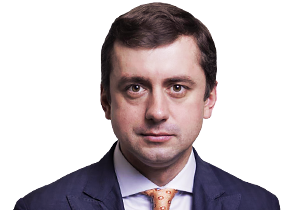"I will strive for good relations with Russia because I think there is every reason to continue our diplomatic efforts, but it is does not make things easier," German Chancellor Angela Merkel said, speaking at the Bundestag, responding to questions about the current situation in diplomatic relations between Russia and Germany. The question concerned a recently arrested Russian national who allegedly hacked the Chancellor's e-mail.
Merkel doesn't understand why, on the one hand, she is building up friendly diplomatic relations with the Russians, and on the other – the Russian man, be it on his own free will or on command from higher offices, penetrates her email.
Berlin has long been looking and will continue to look for high-quality, direct communication with Moscow without anyone eavesdropping, so to speak. This is about normal bilateral relations
On the same day that Merkel called the exposure of a Russian hacker a "terrible episode" in bilateral relations between the two countries, Deputy Chief of Staff Dmitry Kozak paid a visit to Berlin. His mission, however, wasn't about offering an apology for the cyberattack. He sought to discuss the situation in the Ukrainian Donbas. Interestingly enough, the Germans turned a blind eye to the fact that Kozak is an EU-sanctioned official. The coronavirus lockdown didn't stop the Russian government plane from bringing Mr Kozak to Germany. It appears that this visit was truly important for the Germans. In contrast, Merkel chose a video link format to talk with Ukrainian Prime Minister Denys Shmyhal…
Berlin has long been looking and will continue to look for high-quality, direct communication with Moscow without anyone eavesdropping, so to speak. This is about normal bilateral relations. However, when it comes to discussing a third country, when the topic is war in Ukraine rather than a football friendly, it is really worth involving Kyiv. And the fact that the meeting was held without Ukraine suggests two things.
First, it can't be ruled out that a plan for Donbas settlement is being drafted without Ukraine's participation, only to be presented to Kyiv later.
Secondly, the Kremlin is playing ahead of Kyiv's plans. In particular, those on strengthening the so-called advisory group, which will now work in an expanded format. Kozak's own comment in the follow-up to his Berlin visit confirms this suggestion: "These consultations will provide additional impetus to the intensification of talks both in the Normandy format and in the Trilateral Contact Group in Minsk. Appropriate signals will be offered."
So such visits and such statements are an attempt to seize the initiative from Kyiv and present things as if everything has already been decided for Ukraine without its participation. After all, Moscow has repeatedly sent signals, claiming that Kyiv has no unanimous position on Donbas. Therefore, Russia suggests, if Ukraine is unable to deal with this, then Russia, Germany and France are to resolve all issues in Donbas. Now the competition is ongoing between Kyiv and Moscow in terms of whose strategy will ultimately be better.
Kyiv must have its own plan for the return the Donbas territories it has temporarily lost control of and consistently impose this plan on the members of the Normandy Four. After all, if Ukraine has no such plan, it will definitely be offered by Moscow, Berlin or Paris. And it is unlikely to meet Ukraine's interests.
Kyiv must have its own plan for the return the Donbas territories it has temporarily lost control of and consistently impose this plan on the members of the Normandy Four
Therefore, Andriy Yermak’s attempts to get things out of the deadlock could only be welcomed. But will the expansion of the "advisory group" to strengthen our positions in Minsk talks be unilateral? The question remains open. I should recall that the initial version of the "advisory group" failed, having faced fierce criticism on the part of both the leading party and their opponents. After that, the presidential office decided to increase representation to the TCG...
Paris and Berlin are most likely to stand against such an agenda. Moscow has not yet supported the proposal, either. But if Russians do support it, they will insist on Kyiv's direct talks with the occupation administrations in Luhansk and Donetsk. They'll praise the idea and call on Kyiv and rogue regions (read Russian puppets) do the do, only not to involve Moscow.
The Kremlin is gaining confidence in terms of its stance taking into account the volatile political situation in Ukraine, especially with regard to the strategies of Donbas deoccupation and holding elections.
Taras Semeniuk is an analyst with KyivStratPro



